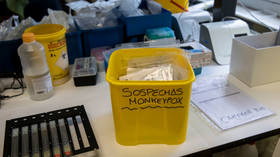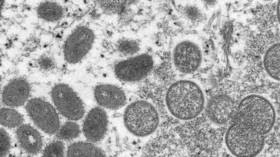WHO issues fresh warning over monkeypox

Monkeypox cases have tripled in Europe over the past two weeks, the World Health Organization (WHO) revealed on Friday, warning that “urgent and coordinated action” is required.
According to the WHO’s regional director for Europe, Dr. Hans Kluge, monkeypox cases have been reported in six new countries and areas since mid-June, taking the total to 31. During the same period, the number of new cases in the region has tripled to 4,500.
The International Health Regulations (IHR) Emergency Committee will soon revise its evaluation of the outbreak’s significance, Kluge revealed. The current position of the committee is that the outbreak “does not constitute a public health emergency of international concern.”
“There is simply no room for complacency – especially right here in the European region with its fast-moving outbreak that with every hour, day and week is extending its reach into previously unaffected areas,” the regional director said.
Kluge outlined a set of measures that should be taken by governments to address the issue. First of all, he said, “countries must quickly scale up surveillance for monkeypox, including sequencing, and obtain the capacity to diagnose and respond to the disease.” The WHO official also stressed the need for “sound public health investments,” as well as transparency in policies, and communication of the “right messages” for the public.
Meanwhile, Kluge said the “sitgmatization” of gay people is threatening the fight against the disease, as 99% of cases have occurred in male patients – the majority of whom are known to have had sex with other men.
“We know from our lessons in dealing with HIV how stigma further fuels outbreaks and epidemics, but allowing our fear of creating stigma to prevent us from acting may be just as damaging,” he said.
According to the US Centers for Disease Control and Prevention, as of July 1, 5,783 cases of monkeypox have been registered in 52 countries with the biggest number reported in the United Kingdom (1,235 cases).
The WHO is not currently recommending mass vaccination against monkeypox. However, on June 28, the US government announced that nearly two million monkeypox vaccines would be distributed in the coming months among “individuals at high risk.”
On June 21, the UK Health Security Agency announced that “some gay and bisexual men at higher risk of exposure to monkeypox should be offered vaccines to help control the recent outbreak of the virus.”
The initial symptoms of monkeypox include fever, headache, muscle aches, backache, swollen lymph nodes, chills, and exhaustion. A rash often begins on the face and then spreads to other parts of the body, although the WHO has noted that patients affected by the current outbreak are developing lesions on the genitals and anus, and not developing some of the traditional flu-like symptoms of infection.
The virus can be spread through close contact with lesions, body fluids, respiratory droplets, as well as via contaminated materials.













